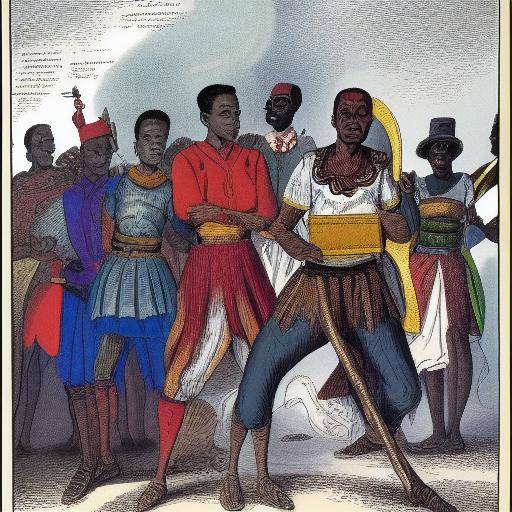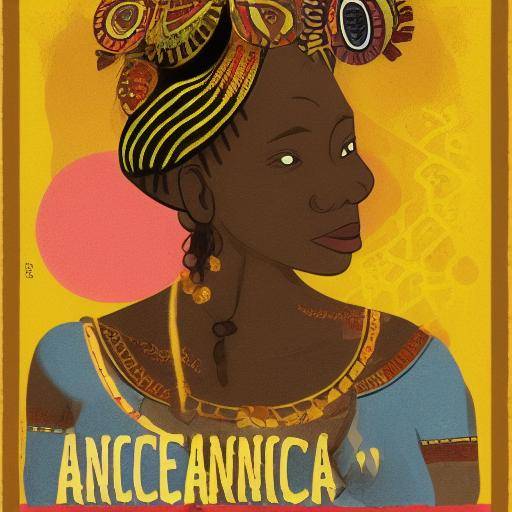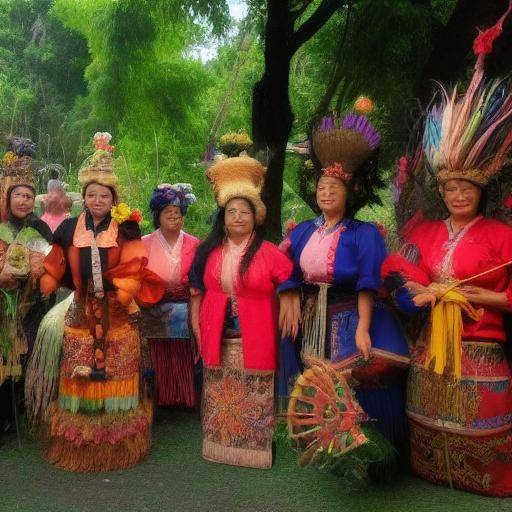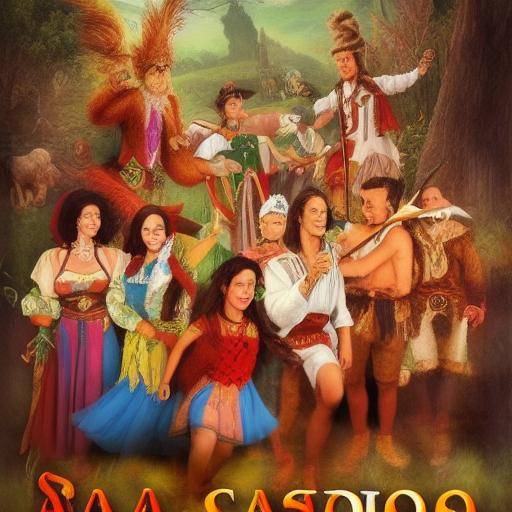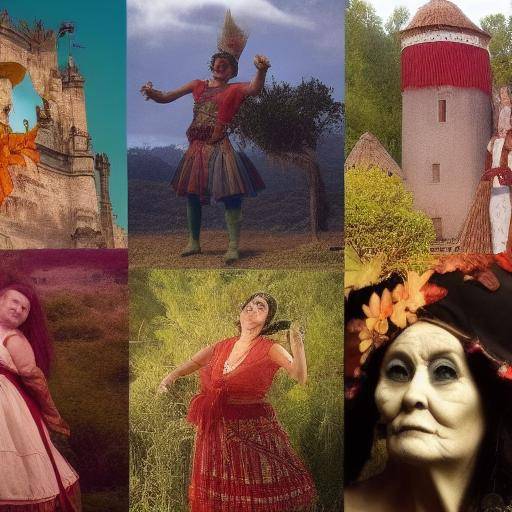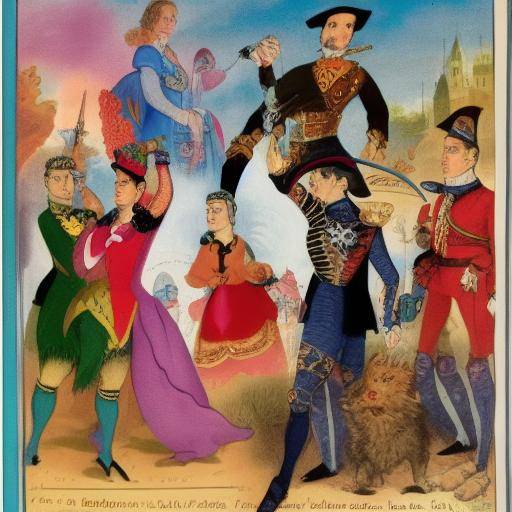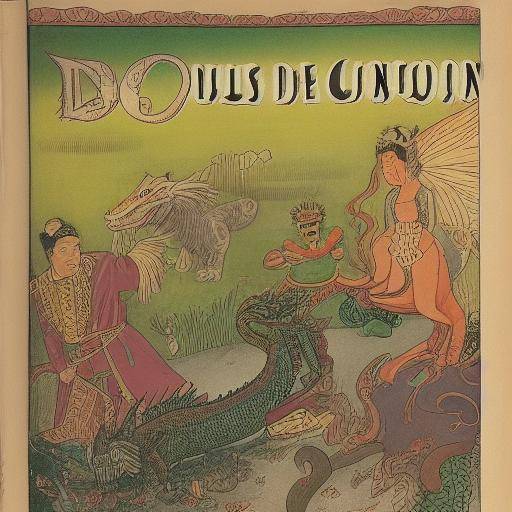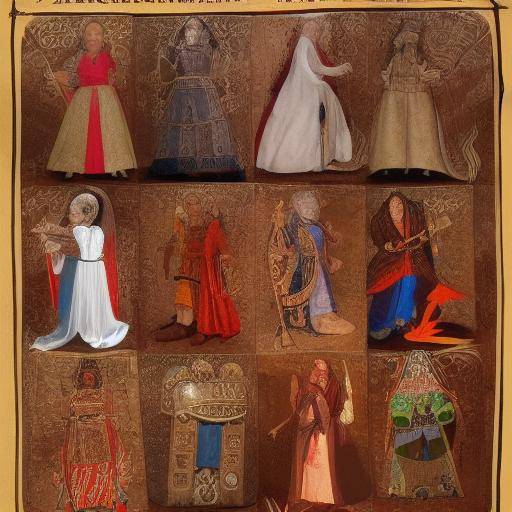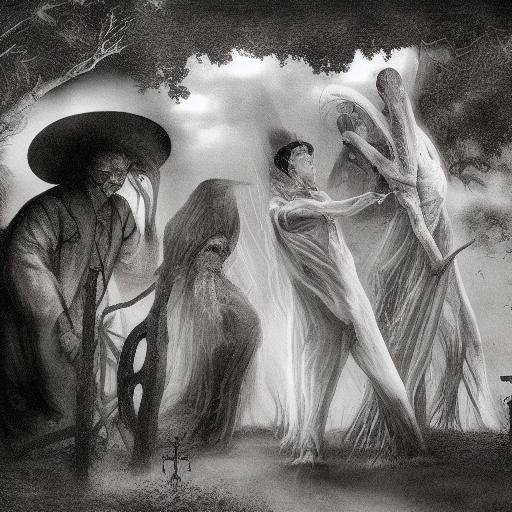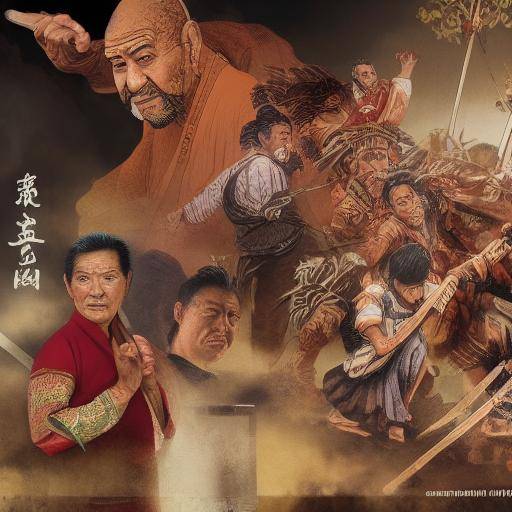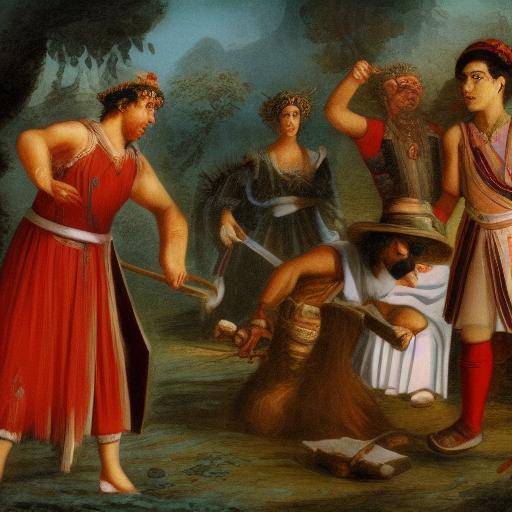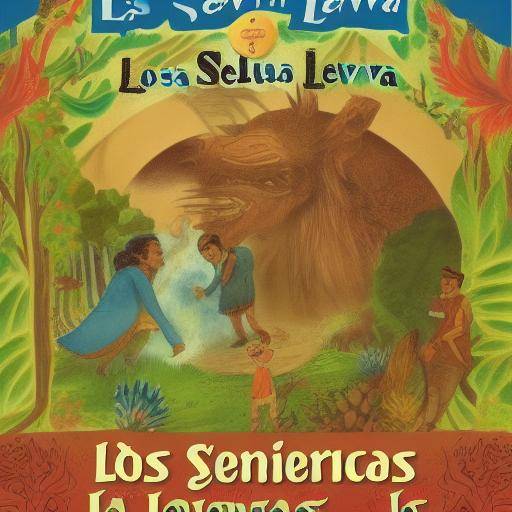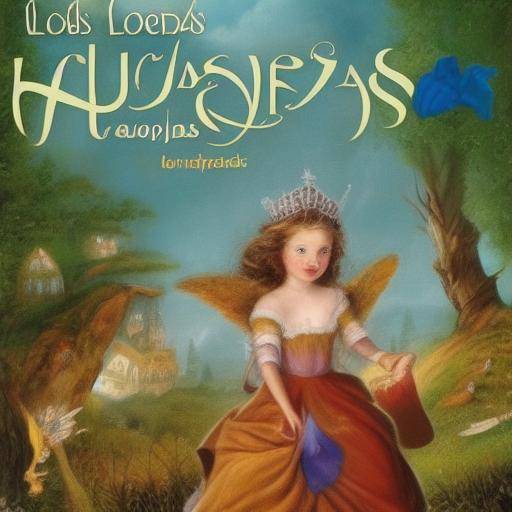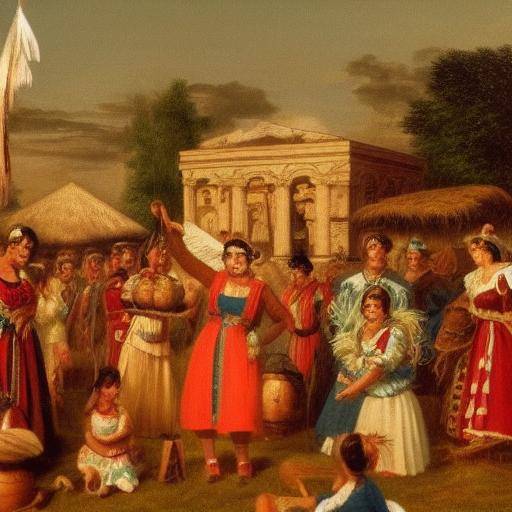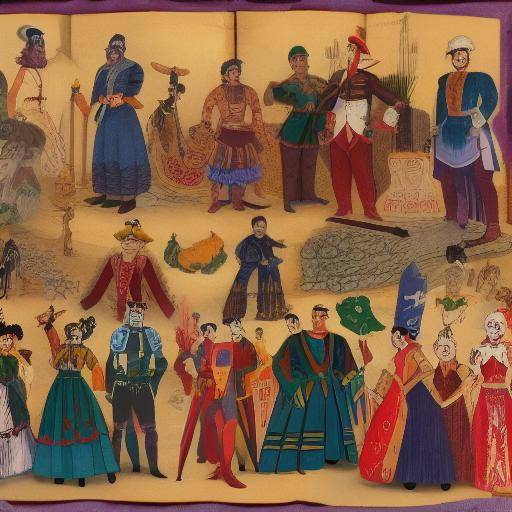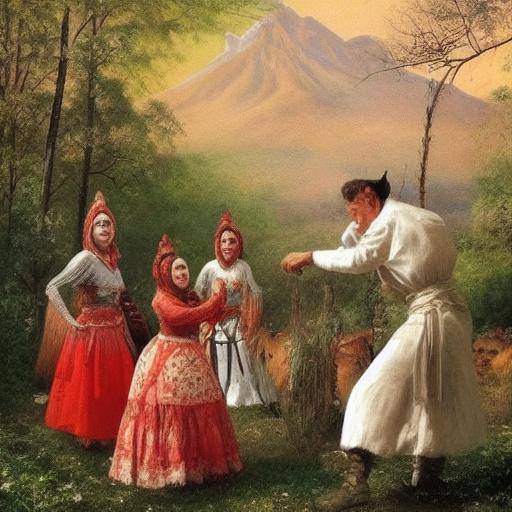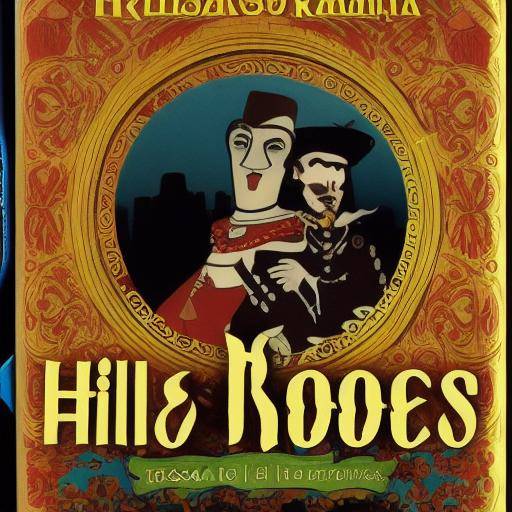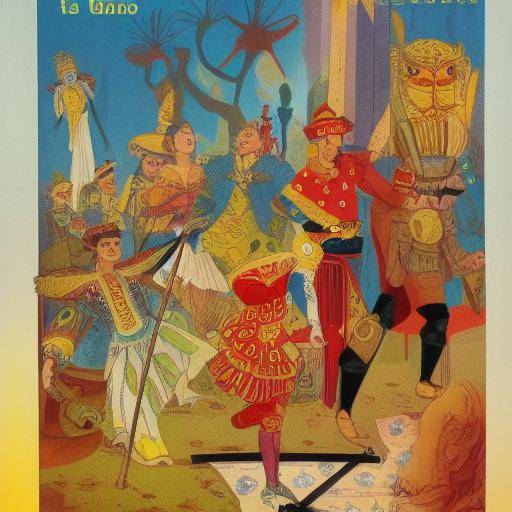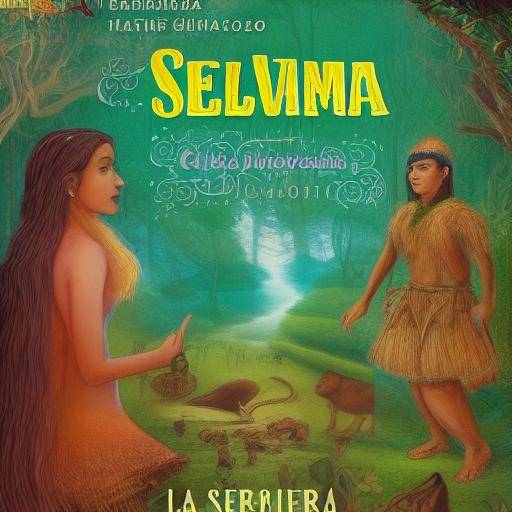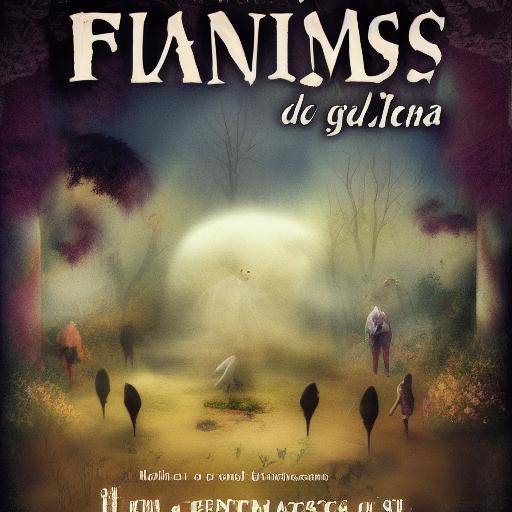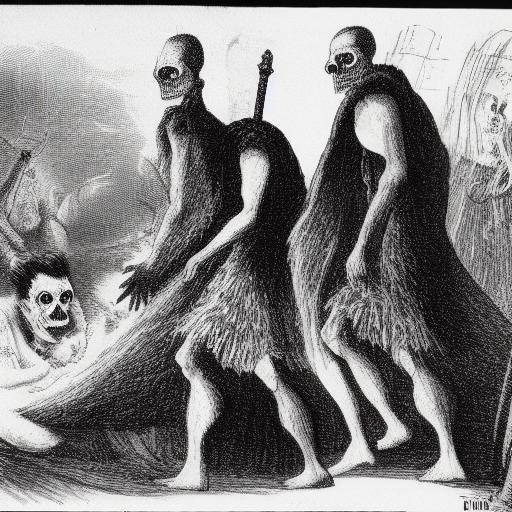
Introduction
Mesopotamian myths, one of humanity's oldest cultural legacy, include amazing stories about the universal flood. These stories have fascinated civilizations over millennia and have influenced various cultures, including the narrative of the universal flood in the Bible. In this article, we will explore in detail the meaning, historical and cultural significance of this subject, as well as its peculiar relevance today. Discover how these legends contain teachings that continue to resonate in modern society.
History and Background
Mesopotamian myths go back to the ancient civilizations of Mesopotamia, a region that currently corresponds to Iraq. These myths are of vital importance, since they not only represent the folklore of an ancient culture, but have also influenced numerous religious, philosophical and literary narratives. The account of the universal flood is part of Gilgamesh's epic, one of the most outstanding works of Mesopotamian literature. Written on clay tablets more than 4000 years ago, this epic is considered one of the oldest literary works in the world.
The history of the universal flood in Mesopotamian myths relates the wrath of the gods and the decision to destroy mankind through a great flood. However, one of the main characters, Utnapishtim, is warned by the god Ea and builds a boat to save his family and animal species before cataclysm. This account has remarkable similarities with the narrative of the Ark of Noah in the Jewish tradition.
The influence of these myths transcends the merely religious or literary sphere; they have exerted a powerful influence on subsequent cultures and, in some way, enriched the collective imagination on catastrophic events and the rebirth of humanity.
Analysis in Deep
The universal flood in Mesopotamian myths not only gives us a window to the worldview of ancient civilizations, but also raises current reflections on climate change, human resilience and the relationship between human beings and nature. Despite its antiquity, the account of the universal flood remains a source of inspiration and learning in the modern era.
Historically, this myth has served as a tool for transmitting moral, ethical and spiritual teachings. Through their accounts, Mesopotamian cultures sought to explain natural phenomena, promote values of solidarity and warn about the consequences of human arrogance. These issues still echo in contemporary society and remain the subject of reflection and debate.
The myth of the universal flood also poses challenges in the interpretation and understanding of ancient cultural beliefs and practices. How can we contextualize these myths in the modern world? What lessons can we draw from these stories to address current environmental and social challenges? These questions invite us to undertake a deeper and more multidisciplinary analysis of the relevance of Mesopotamian myths today.
Comprehensive review
The narrative of the universal flood in Mesopotamian myths can be analyzed from various approaches and disciplines. From archaeology to anthropology, through history, philosophy and literature, these stories offer abundant opportunities for interdisciplinary research and enrichment of human knowledge.
By observing these myths from a contemporary perspective, we can identify their influence on art, music, literature and cinema. Num Kin 0 Ea's Flood destroys nearly all of humanity.
In recent years, climate change has led to renewed interest in universal flood narratives, as the catastrophic events described in Mesopotamian myths offer a point of comparison to environmental concerns and disaster management today. In addition, the study of these accounts from psychology and sociology reveals its impact on the formation of collective identity and on the transmission of intergenerational values.
In exploring the narrative of the universal flood in Mesopotamian myths, we find not only a source of historical and cultural knowledge, but also a reminder of human capacity to adapt and prosper in times of adversity. These stories urge us to reflect on our relationship with the natural environment, the importance of preserving cultural diversity and the need to promote global solidarity in the fight against contemporary challenges.
Comparative analysis
Compare the universal flood in Mesopotamian myths with other similar narratives, such as the account of the Ark of Noah in the Judeo-Christian tradition, allows us to identify significant similarities and differences. In doing so, we get a broader and more enriching view of how these stories have evolved over time and have been interpreted by different cultures.
While Gilgamesh's epic narrates divine intervention as a result of the overpopulation and the deafening noise of humanity, the biblical account of the universal flood focuses on divine wrath against widespread evil and corruption. Despite these differences, both narratives share the idea of divine punishment followed by the preservation of life through a devastating flood.
The comparative analysis between different universal flood myths invites us to reflect on the fundamental similarities underlying the various cultural traditions. Through this comparison, fundamental questions arise about human nature, the meaning of suffering and the hope of renewal. These questions transcend cultural borders and lead us to explore universal values that connect humanity in its diversity.
Practical Tips and Accessible Recommendations
As a result of the symbolic and narrative richness of the Mesopotamian myths about the universal flood, a set of practical teachings and recommendations applicable in the current context arises. Some of these lessons include:
- To value the harmonious relationship with the natural environment and promote environmental conservation practices.
- Promote solidarity and community resilience to address natural disasters and humanitarian crises.
- Reflect on the ethics of power and individual and collective responsibility in decision-making that impact the well-being of humanity and the planet.
- Recognize the importance of preserving and celebrating cultural diversity as a source of wealth and intercultural understanding.
- Promote interreligious and intercultural dialogue to cultivate tolerance and mutual understanding.
These recommendations are derived from reflection on the mesopotamian myths of the universal flood and can be applied in everyday life, both at the personal and community levels, to foster a more just, sustainable and solidarity world.
Conclusions and FAQs
Conclusions
The universal flood in Mesopotamian myths represents a cultural legacy of immense value, whose teachings and reflections remain relevant today. These stories invite us to reflect on human nature, the relationship with the natural environment and the importance of preserving cultural diversity. Through comparative and multidisciplinary analysis, we discover the symbolic wealth and universal resonance of these myths.
Frequently asked questions
1. What is the importance of the universal flood in Mesopotamian myths?
The universal flood in Mesopotamian myths represents a profound reflection on the relationship between humanity and nature, as well as an exploration of the consequences of human pride. In addition, this story has influenced numerous cultural, literary and religious traditions throughout history.
2. How do Mesopotamian myths influence contemporary society?
Mesopotamian myths, including the account of the universal flood, offer lessons on the importance of environmental conservation, community solidarity and the appreciation of cultural diversity. These lessons can be applied in today's society to promote a more sustainable and harmonious world.
3. What is the relationship between the myth of the universal flood in Mesopotamia and other cultural traditions?
The comparison between the universal flood in Mesopotamian myths and other similar narratives, such as the biblical account of the Ark of Noah, reveals fundamental similarities that suggest the existence of universal values that connect humanity through various cultural traditions.
4. How can we apply the teachings of Mesopotamian myths in everyday life?
Lessons derived from Mesopotamian myths, such as the assessment of nature, the promotion of solidarity and the preservation of cultural diversity, can be applied in everyday life through conservation practices, solidarity actions and the promotion of intercultural dialogue.
5. What contemporary challenges do you find echo in the mesopotamian myths of the universal flood?
Climate change, the management of natural disasters and socio-environmental conflicts echo in the mesopotamian myths of the universal flood, which invites us to reflect on human resilience and the importance of global cooperation today.
6. What is the relevance of Mesopotamian myths in the interdisciplinary context?
Mesopotamian myths offer a rich source of interdisciplinary study and research, allowing them to explore their impact in various fields such as history, anthropology, literature, art and psychology, which enriches the understanding of humanity and its relationship with the environment.
In conclusion, the mesopotamian myths of the universal flood represent an invaluable legacy that remains a source of inspiration and reflection in contemporary society.

